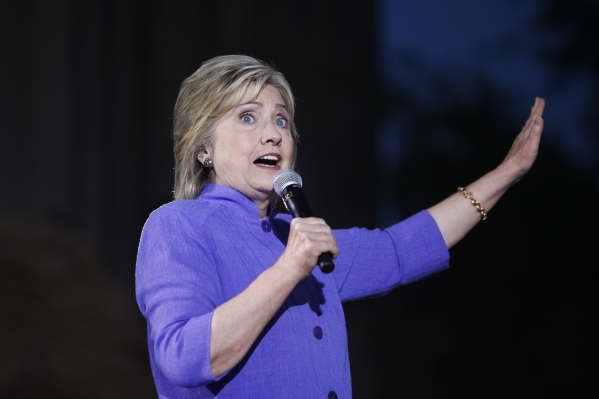EDITORIAL: Email probe shows Clinton lacks judgment and integrity to be president
During Tuesday night's Democratic presidential primary debate in Las Vegas, Hillary Clinton characterized the committee investigating her private email server as a Republican-led "partisan vehicle" designed to drive down her poll numbers. However, when CNN moderator Anderson Cooper quickly pushed back, saying it was "a little bit hard to call this just a partisan issue" and pointing out that President Barack Obama himself had called it a legitimate issue just two days prior, Mrs. Clinton changed her tune, claiming she "never said it wasn't legitimate." Then, moments later, Mrs. Clinton said she didn't want talk about her emails, but rather "about what the American people want from the next president of the United States."
More than anything else, what the American people would like from the next president is someone who can give straight answers and engender enough trust to be believable. Despite Mrs. Clinton's boasting that she has answered and will continue to answer all questions pertaining to her email setup as secretary of state, the list of questions continues to grow.
No wonder she wanted to change the subject Tuesday night. An Associated Press investigation has determined that the email server that was in Mrs. Clinton's basement during her time as secretary of state was extremely vulnerable to remote attacks by hackers. The server — which held top-secret emails, as well as other emails containing confidential or sensitive information — was connected to the Internet via Microsoft remote desktop software that required additional security measures but didn't have them, and which both the U.S. government and industry leaders warned was prone to attacks.
Mrs. Clinton repeatedly has said that her server had "numerous safeguards," but she hasn't gone into detail about just how — or how often — it was secured. And while she boasts about her transparency, she wouldn't have turned over anything if The New York Times hadn't revealed her private server in the first place. Meanwhile, her privately paid technology adviser exercised his Fifth Amendment right against self-incrimination when congressional investigators asked him about his work on the server.
How in the world did a member of the president's Cabinet think it would be OK to leave her communications so vulnerable to snooping? The conclusions are obvious: Her setup had no oversight from digital and national security officials, and it had no oversight because she didn't bother seeking approval for it. And now Mrs. Clinton wants Americans to believe she has the judgment and integrity to be president? That does not compute.

















